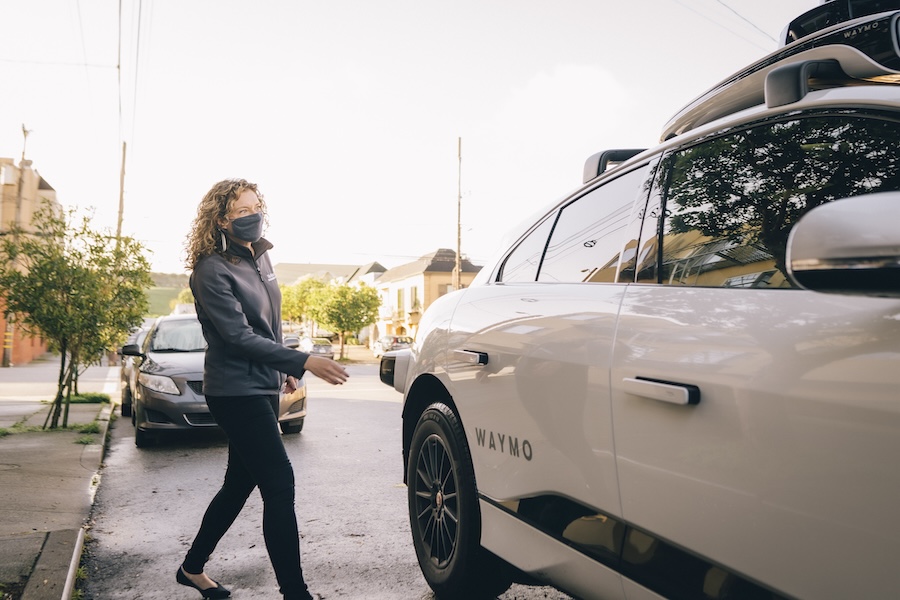Partnered with The Richmond Neighborhood Center
When Michelle Cusano first moved to San Francisco after graduating from college in Ohio, she found herself easily embracing life in the Richmond neighborhood: a vibrant area where languages spoken range from Cantonese and Mandarin to Spanish, Russian, Tagalog, Japanese and more.
With a passion for social justice, Cusano accepted a job at The Richmond Neighborhood Center, a local nonprofit organization with a youth development mission, and found herself more immersed in the community, drawn to supporting her neighbors through her work at the center.
“When I started at The Richmond Neighborhood Center, I knew I found my place where I could make positive change in the world,” Cusano said.
That was 20 years ago. Now, Cusano is the executive director of The Richmond Neighborhood Center, which, in addition to providing after-school and community programming, has a robust food security program as well. At least 19,000 people in the Richmond neighborhood are at risk of food insecurity, according to a 2018 Assessment of Food Security by the San Francisco Food Security Task Force.
“That can be families who are concerned about ‘How are we going to afford to feed our children their next meal?’ And it can be a senior who’s living alone who doesn’t have the ability to get to and from the grocery store,” Cusano explained.
In addition to offering food-insecure neighbors access to a food pantry where they can pick up fresh, free groceries, The Richmond Neighborhood Center also operates an active grocery delivery program serving local seniors and adults living with disabilities. Volunteers—who play an essential role in the non-profit’s day-to-day operations—pick up the groceries and then deliver them to community members facing mobility challenges.
“We’re serving a thousand people a week, and that’s just scratching the surface,” Cusano said.
Cusano—who believes San Francisco has an opportunity to showcase how its cutting-edge technology can be used for good—says she can imagine how tech innovation, including Waymo’s autonomous vehicles, could help support the center’s mission.
“When I first heard of Waymo’s autonomous vehicles, I immediately realized [that] there are so many possibilities here to make our work easier and make more access points for our youth and our seniors,” Cusano said.
Cusano believes seniors who face mobility challenges—including those who are isolated without support systems—could use Waymo to get to and from The Richmond Neighborhood Center’s food pantry and stay to relax in the center’s courtyard, laugh, and talk to their friends. Not only would this allow them to maintain a level of independence, but it would also give them the opportunity to connect with others and enjoy a greater quality of life.
“Some of our seniors have had to move to the homebound senior program because they can’t get to and from this space where they get to hang out with their friends as easily anymore,” Cusano explained.
Cusano adds that Waymo’s autonomous driving technology can offer residents an additional mobility option to connect with their communities.
“It’s all about accessibility: accessibility to community programs, accessibility to your friends,” Cusano said. “It gives you more opportunities to be joyful and to be part of your community, and be with your neighbors.”
That’s something Mary Beth Roberts, a resident of the Richmond neighborhood, says she appreciates about The Richmond Neighborhood Center. During an extremely difficult time in her life, she turned to the center for assistance and met other people in similar situations, which helped her feel less isolated.
“You see a lot of familiar faces,” Roberts said. “It builds a community.”
Cusano said that Waymo could help the center focus on building connections between people.
“Being able to use technology to help us get food delivered would allow our staff and volunteers to focus on what we are really good at: building community,” she said.
Through a partnership between The Richmond Neighborhood Center and Waymo, Cusano was invited to experience a Waymo One ride firsthand in 2021. Since then, she has become a frequent rider and cites safety and convenience as two of her biggest motivating factors.
“I have taken Waymo to and from work, to pick up friends along the way for a night out, and I have even taken out-of-town guests in a Waymo. … I’m thankful to be living in a city that embraces technology when it can improve our lives with convenient and safe modes of transit,” Cusano said.
Cusano says she aspires for The Richmond Neighborhood Center’s work to be seen as innovative too, especially when it comes to making San Francisco an inclusive place to live for all people and families.
Waymo provides fully autonomous rides, with no human driver behind the wheel, to the public, 24/7 across San Francisco. Waymo is building on the experience and insights it has gained from operating its fully autonomous ride-hailing service, Waymo One, in Metro Phoenix since 2020.
A waitlist is available for the public to ride in LA, and testing continues in Austin, Texas.
Learn more about Waymo’s work in the community.

